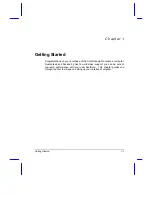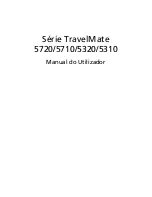
95
How do search engines work?
Searching the Web actually means searching intermediate databases since it is not possible to
directly search the World Wide Web, which contains an estimated 1 billion documents. The
Web is the totality of web pages found in computers (called "servers") worldwide.
Search engines use software or robot programs (called “spiders”) to search the Net for
documents and the corresponding addresses (Uniform Resource Locator). These documents
and web addresses are then collected in the search engine's indexing software. The indexing
software, after getting information from the documents, stores the information in a database.
Indexing the information varies depending on the type of engines. Some engines index key
words in a document while others index the document title. When you perform a search, the
database is being searched for documents that match, and the results are displayed on a web
page.
There are two main categories of Internet search tools:
-
Search engines and meta-search engines
work by processing the search terms you
type in and listing the possible web sites that can be found under that subject. Examples of
search and meta-search engines are AltaVista and Metacrawler.
-
Subject directories display by categories
. These categories are organised into
hierarchies or a list from generic to specific topics. Yahoo is an example of a subject
directory where links are sorted in hierarchical structure.
How can I narrow down a search on the Internet?
•
Use several key words
- if you are searching for 1980s pop music, use the key words
“music” and “80s” in your search for better results. Be sure to spell the words correctly to
minimise getting an error page.
•
Be as specific and precise as possible
- like searching a library catalogue, the more
specific the search is the more effective it will be.
•
Be careful when using punctuation marks
- some users search by typing a question.
For example: '”What is 80s music?” This option allows the search engine to come up with
several sites that may be of interest to the user. Compared to a target-specific search, this
option has more flexibility by delivering a wider range of topics under 1980s popular music.
•
Speed up the search by using Boolean expressions
- these expressions are AND, OR,
and NOT. The Boolean expressions can be used to connect words and phrases in a search
request.
•
Use the '+,' '-' signs
- for certain search engines, the signs '+', '-' before a word
respectively include or exclude it. Do not include a space between these signs and the
searched words.
•
Refer to the search engine's Help pages
- it may offer relevant tips or offer shortcuts
that you might have missed. The Help pages also give a guide on how to properly use the
engine and get better results.
•
Try using synonyms or re-phrasing the search
- for example, instead of ”80s” you can
use the word “eighties” or "lunar expeditions" for "moon expeditions." At the same time,
try to refine the search by adding specific details.
What are the cookies?
A cookie is a small piece of information written to the hard drive of an Internet user whenever
the user visits a Web site that offers cookies. Although cookies are tiny files (around 255
characters and 4k of disk space), it contain miscellaneous information such as the name of the
Web site that issued them, pages viewed by the user, log-in names and credit card numbers
that have been supplied via forms.
















































